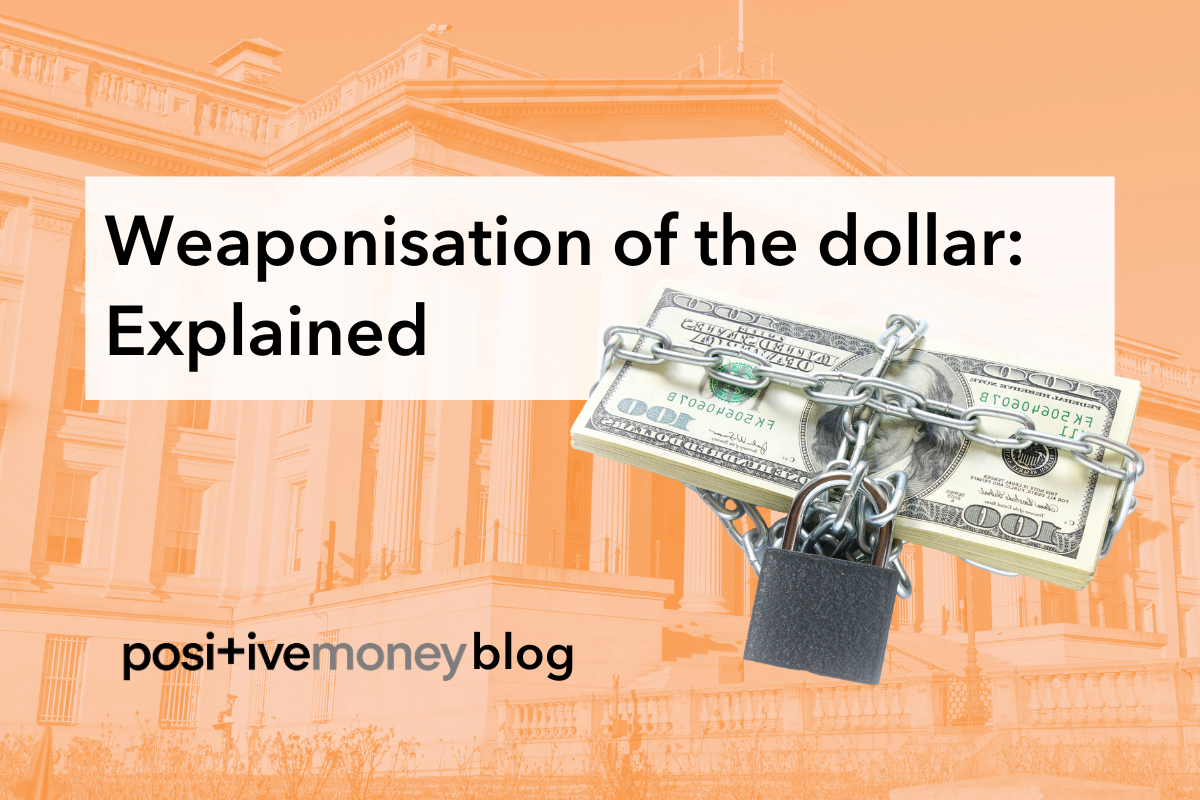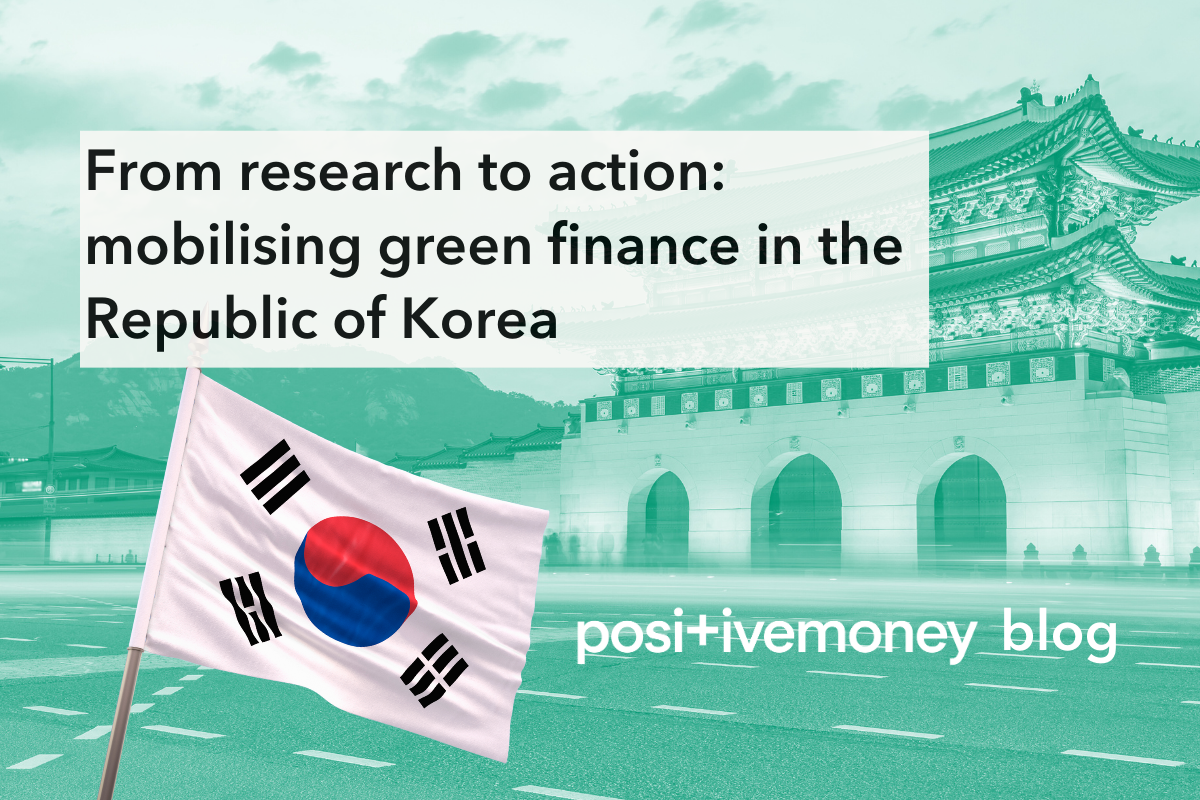
GlobalUK
29 April 2025
The Republic of Korea faces a pivotal moment as the Constitutional Court demands stronger laws to protect human rights and future generations. The Bank of Korea (BoK) can play a crucial role in this transition, holding immense potential to drive decarbonisation through green financial policies and sustainable investments, but it is not yet matching the urgency of the climate crisis.
This article is part of our series exploring green central banking in East Asia.
The Republic of Korea is experiencing unprecedented events, marked by the first declaration of martial law since democratisation and the impeachment of the President. Amid the political upheaval, the public, especially young people, are demonstrating great resilience and standing strong against the President’s misconduct. A similar energy for justice and democracy has been seen before as a part of the fight to protect fundamental human rights threatened by the escalating climate crisis.
In August 2024, the Republic of Korea’s Constitutional Court unanimously ruled that the country’s climate legislation did not protect fundamental human rights and failed to protect future generations with inadequate climate targets. This first-of-its-kind decision in Asia sent a very clear message to the Republic of Korea and the wider region that climate actions must be strengthened.
On the other hand, the country requires heavy lifting to decarbonise industries such as steel and reduce dependence on fossil fuels, which currently provide 60% of its electricity and will keep depending on fossil fuels even by 2030. Also, the country’s climate change commitments are highly insufficient, aligning with a pathway of over 4°C global warming. Moreover, the country does not have a plan to end new oil and gas exploration, and recently, President Yoon Suk Yeol approved exploratory drilling for oil and gas on the East Coast.
People in the Republic of Korea demanded more ambitious climate change legislation and legally won the case, but the government has failed to meet their demands. To support the government’s efforts for decarbonisation, a key role could be taken by the central bank - the Bank of Korea- by effectively greening monetary and financial policies, as well as engaging in international sustainable finance discussions such as through the Network for Greening the Financial System (NGFS). However, the Republic of Korea performed poorly on our 2024 Green Central Banking scorecard, ranking 16th out of the G20 countries. Moreover, other public institutions such as financial supervisors, regulatory institutions, and the Ministry of Environment also started to work to supplement the central bank's measures and support the government’s climate commitments.
The Bank of Korea (BoK) pursues price and financial stability as its primary mandate and is in charge of monetary policy. The President appoints the Governor and the Senior Deputy Governor, and the Governor appoints five Deputy governors, forming seven members of the Monetary Policy Board, the top decision-making body. Similar to other major economies, the BoK is independent of the government, reinforced by revisions of the Bank of Korea Act in 1997 and 2003. The revisions also introduced the inflation target, although this is set in consultation with the government.
In October 2021, the BoK published “Bank of Korea’s Response to Climate Change”. Despite the report’s stated commitment to take “a leading role in responding to climate change”, the country’s main focus has been on scenario analysis and reviewing available policy tools, which, as of November 2024, have not been effectively implemented.
Over the last two years, the BoK published several research papers exploring the impacts of climate change on the Korean economy and the impact of tariffs on decarbonisation technology products. In January 2024, the BoK also established the Office of Sustainable Growth; a new office to respond to climate risk by integrating two departments in charge of financial stability, and Planning and Coordination to strengthen its climate change measurements. Rhee Chang-Yong, the governor of the BoK, is particularly concerned about the risks to Korea’s export-driven economy, which heavily depends on global value chains due to its limited domestic resources. The BoK is actively researching and working to mitigate the risks of global value chain distractions caused by climate change, and this concern is referenced in another BoK publication titled ’Spillover effects of foreign climate-related physical risks’.
Besides the research, the BoK has also started reviewing available policy tools and encouraging the supply of green finance to minimise the impact of climate change, but significant progress has yet to be made.
One of the few notable signs of progress by the BoK has been the expansion of ESG investment and negative screening in FX assets. The BoK manages the world's 9th largest foreign currency reserves, holding over USD 400 billion. The BoK actively manages and diversifies its foreign reserves and invests in equities and corporate bonds ETFs besides government bonds. Hence, the allocation of foreign assets and reserves significantly influences how effectively the BoK aligns its actions with its climate commitments. The BoK more than doubled its FX ESG assets to USD 19.6 billion in 2023, up from USD 9 billion in 2021.
The BoK is also implementing an ESG negative screening strategy to exclude high-carbon emitters from its outsourced FX assets and plans to extend its ESG-integrated strategies for its foreign assets and reserves. However, the latest information is not available publicly.
Another interesting initiative is providing green finance for small and medium enterprises (SMEs) through its bank intermediation support facility. Although SMEs are also exposed to the risks of climate change, they have limited access to green finance due to their lower credit ratings. This poses risks to the broader value chains that are dependent on SMEs. Hence, the BoK is seeking various approaches to provide green financing to SMEs, such as securitisation and issuing bonds.
Despite the limited policy implementation from the BoK, other public agencies started to take initiatives to drive green investments to support the government’s climate commitments. Under the Bank of Korea Act of 1997, financial monitoring and supervision authority shifted to the Financial Services Commission (FSC) and the Financial Supervisory Service (FSS). They divide the roles, with the FSC setting financial supervision policies and the FSS implementing these decisions and supervising financial institutions.
The FSC leads some initiatives to promote green finance. For example, it announced coordination with five public financial institutions to increase the annual supply of green funds by KRW420 trillion by 2030. The FSC has also worked with the banking sector to create KRW9 trillion in future energy funds for clean energy facilities and KRW3 trillion to support climate-tech companies.
Moreover, the FSC is working with The Korea Sustainability Standards Board (KSSB) on standardising ESG disclosure for companies listed on the Korean stock exchanges, and the draft was published in May 2024 by the KSSB. However, the implementation is expected in 2026 or later, and the timeline is not available yet. Asian Investor Group has shown concerns and is requesting implementation no later than 2026, with a clear timeline set out by the end of 2024.
The FSS, on the other hand, introduced new guidelines for ESG ratings to enhance transparency and comparability in 2023. Moreover, in 2024, the FSS announced that they would conduct stress testing collaboratively with the BoK and 15 financial institutions in Korea to “detect the impact of climate risk on financial stability and enhance the sector's capabilities in managing climate risk”. This is the first stress testing in which the FSS, BoK, and financial institutions work together.
In addition to the FSC and FSS, the Ministry of Environment (MOE) is taking initiatives to create a green finance market, having published the K-Taxonomy in 2021 and conducted a pilot project in 2022, in which six banks and companies successfully raised totalling KRW 640 billion. In 2024, the MOE announced upgrading the K-Taxonomy to boost green finance. The MOE also works to create an ideal environment for green investment, including emission trading, to attract private finance, aiming to raise KRW30 trillion by 2027.
Much work remains for the BoK to support the national government in aligning with the 1.5C degree climate goal. While the BoK has made strides in acknowledging and addressing climate-related risks, much of its work remains very cautious and research-driven. Establishing the Office of Sustainable Growth and expanding ESG investments are notable steps forward, demonstrating its commitment to integrating climate concerns into its financial policies. However, a few policies implemented, such as foreign asset management and support for SMEs, are still in the preliminary stage, and significant gaps persist in actionable effective policy tools that drive measurable progress.
The BoK must expedite the integration of green policies into its monetary and financial frameworks, such as green lending schemes, asset purchase programs and collateral frameworks. Also, the information should be communicated with enhanced transparency through regular disclosures.
Moreover, the Republic of Korea should contribute to developing international sustainable finance by actively participating in international initiatives such as the NGFS. With the Republic of Korea being elected as a board member of the Green Climate Fund at COP29 in Baku, the world is watching how the country will lead on international green finance, including ambitious and measurable actions from the BoK, which will be required if it is to improve its score in the Green Central Banking Scorecard.
This article is part of our ongoing series exploring green central banking in East Asia.
—---
Kentaro Nunokawa is a campaign fellow at Positive Money and a full-time Japan Energy Campaigner at Market Forces. Ken has been actively involved in climate campaigns in Japan with a particular focus on engagement with Japanese corporations, financial institutions, and investors. Ken holds a degree in Arts and Sciences, majoring in Peace Studies, from International Christian University and an MA in Political Ecology from Universitat Autònoma de Barcelona.
Sign-up to our mailing list for regular updates, or donate to support our work to redesign our economic system for social justice and a liveable planet.
